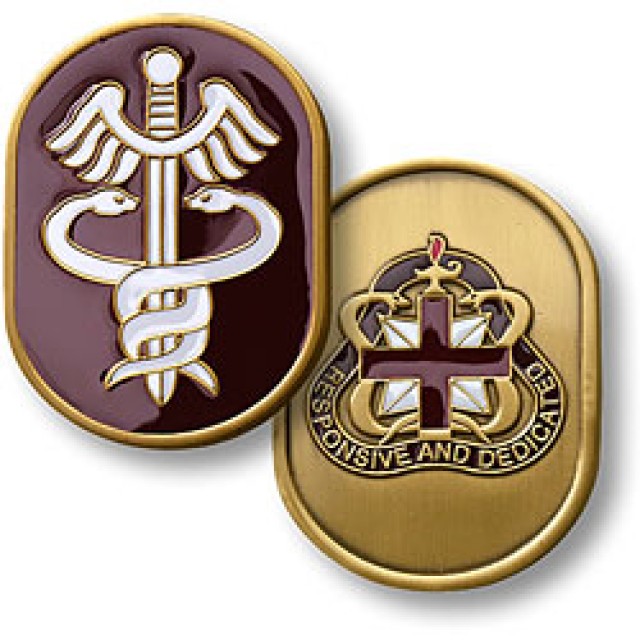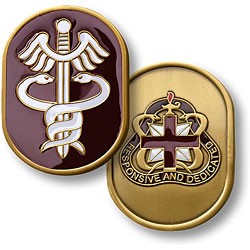FORT BENNING, Ga. - With the flu season in full swing, Martin Army Community Hospital healthcare providers are encouraging people to take preventive measures seriously, especially pregnant women.
"A pregnant woman who gets the flu is 10 times more likely to be hospitalized than infected people in the general population," said MAJ Renee Busse, chief of Community Health Nursing.
"The best protection for pregnant women and their babies is to make sure they get both the 2009 seasonal and H1N1 flu shots."
Although there is a mist version of the seasonal flu vaccine, Busse said pregnant women are only eligible for the injectable shot. Both seasonal flu shots and 2009 H1N1 flu shots are recommended for pregnant women at any time during pregnancy.
"We want our pregnant women to get the injectable version of both the seasonal and H1N1 vaccine," Busse said. "One of the benefits is that they can get both flu shots at the same time."
Both are endorsed by the Centers for Disease Control and are safe for pregnant women.
Any pregnant woman battling flu-like symptoms should call her doctor right away, Busse said, because antiviral medicine is most helpful if it is started within the first 48 hours after they become sick.
The current antiviral medication being used to treat the flu includes oseltamivir, also known as Tamiflu, and zanamivir, also known as Relenza. The antiviral medicines fight the flu by keeping flu viruses from replicating in the body, which results in a milder illness and makes you feel better faster, Busse said. Antivirals can also prevent serious flu complications.
"At this time, Tamiflu is the best medicine to treat pregnant women who have 2009 H1N1 flu," she said. "Please also realize that we're only giving antiviral medication to high-risk beneficiaries, such as pregnant women, who may not recover as well from the flu."
Currently, there are no studies that suggest pregnant women or their babies will have adverse outcomes from taking antiviral medication. Busse recommends women talk to their doctor if they have questions about the medication.
"We're here to answer questions," she said. "Take advantage of it so that you're comfortable with getting the vaccine and if needed, antiviral medication."
For more information about the seasonal and H1N1 viruses, visit the CDC Web site at www.cdc.gov.
Pregnant patients can get their vaccines by scheduling an appointment with the Family Medicine and Pediatrics Clinics by calling 706-544-2273 or by visiting the Flu Clinic, located on the 8th floor of MACH, from 8 to 11 a.m. and 1 to 3 p.m. Monday to Friday. Up-to-date information is available at the MACH Web site, www.martin.amedd.army.mil, and at the post's Web site, www.benning.army.mil.
Protect yourself, protect your baby
Pregnant women need both the 2009 H1N1 flu shot and the seasonal flu shot.
Take everyday precautions - practice and preach good cough etiquette, good hand washing and avoid sick people.
If you have been exposed to someone who likely had the flu and you are pregnant, call your doctor.
If you are pregnant and start to feel sick, call your doctor right away. Take the medicines your doctor prescribes and let your Army health clinic know if you did not receive antiviral medication from a local national hospital.
Having a fever can cause problems for a pregnant woman and her unborn child. Acetaminophen (Tylenol) is the best way for pregnant women to lower a fever.
Plan to breastfeed as soon as your baby is born.


Social Sharing